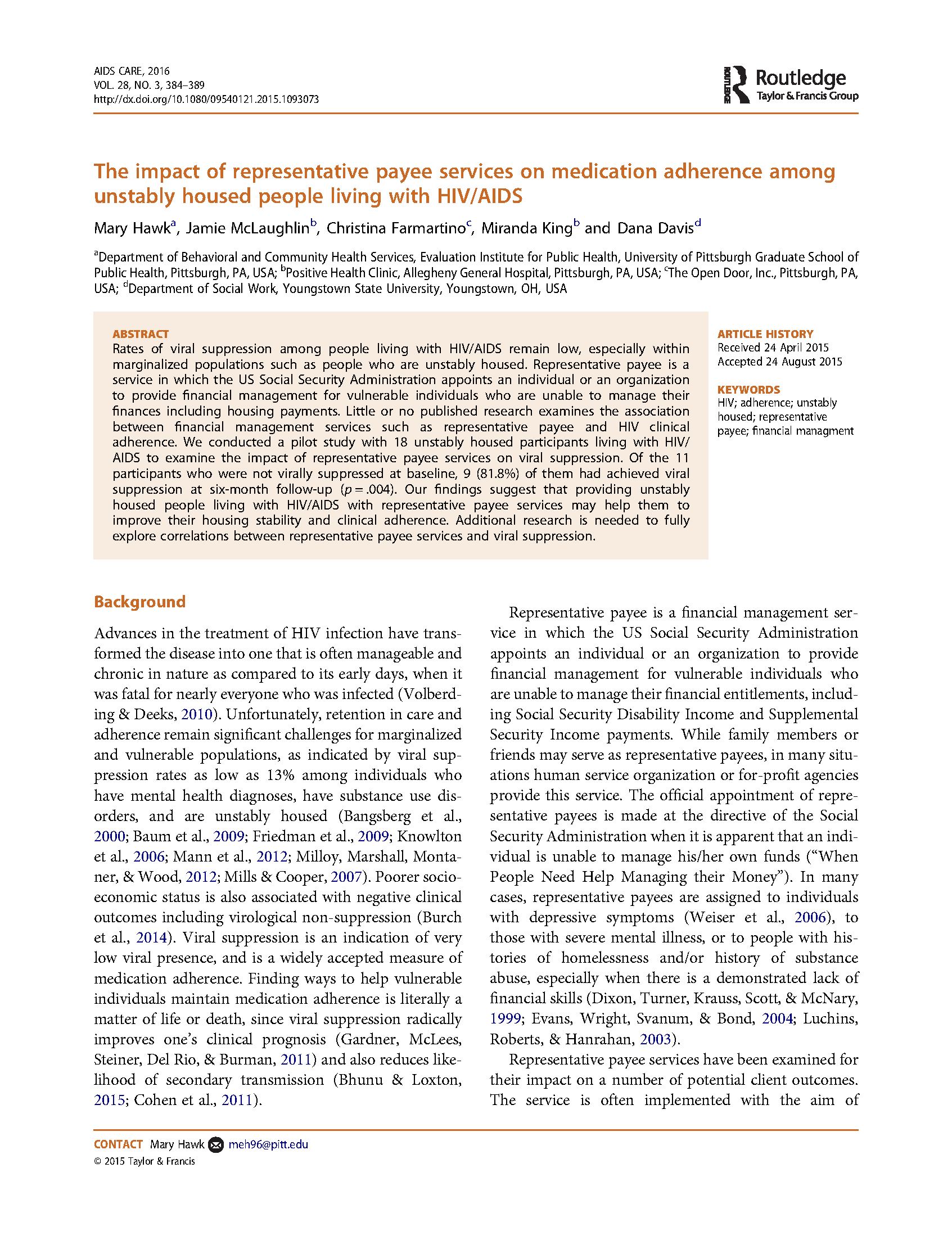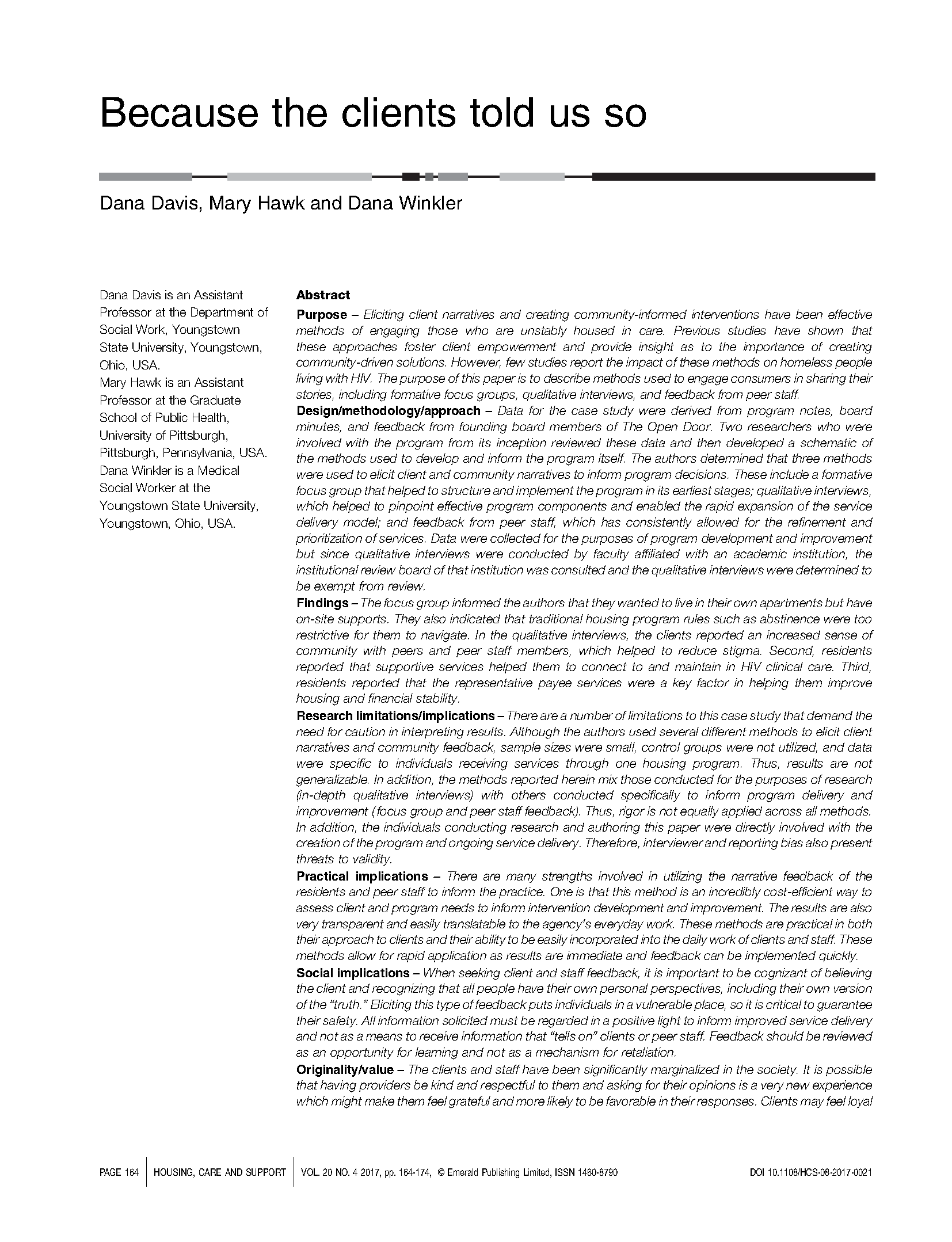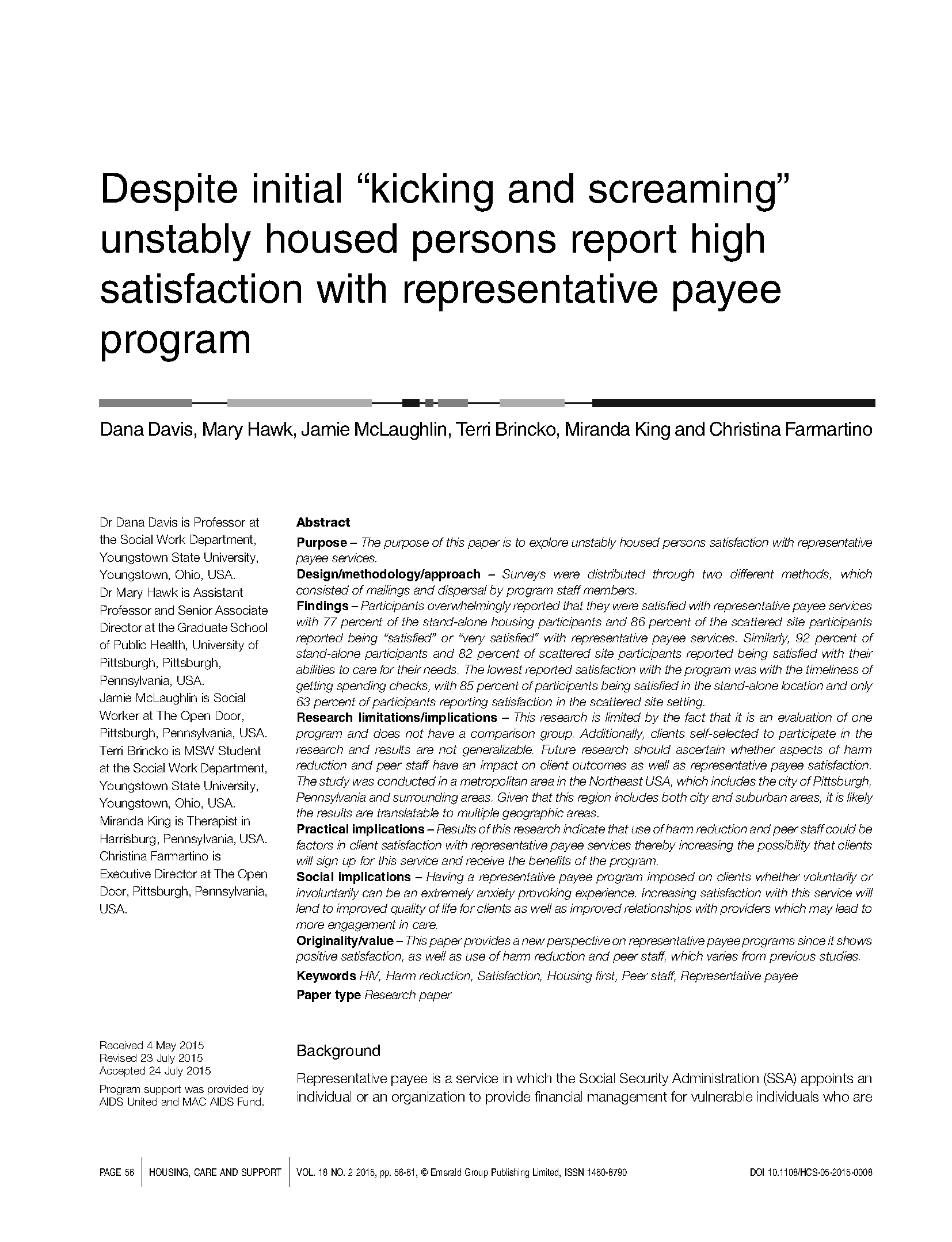Publications
Publications:
Mary Hawk (a), Jamie McLaughlin (b), Christina Farmartino (c), Miranda King (b), and Dana Davis (d)
(a) Department of Behavioral and Community Health Services, Evaluation Institute for Public Health, University of Pittsburgh Graduate School of Public Health, Pittsburgh, PA, USA; (b) Positive Health Clinic, Allegheny General Hospital, Pittsburgh, PA, USA; (c) The Open Door, Inc., Pittsburgh, PA, USA; (d) Department of Social Work, Youngstown State University, Youngstown, OH, USA
ABSTRACT
Rates of viral suppression among people living with HIV/AIDS remain low, especially within marginalized populations such as people who are unstably housed. Representative payee is a service in which the US Social Security Administration appoints an individual or an organization to provide financial management for vulnerable individuals who are unable to manage their finances including housing payments. Little or no published research examines the association between financial management services such as representative payee and HIV clinical adherence. We conducted a pilot study with 18 unstably housed participants living with HIV/AIDS to examine the impact of representative payee services on viral suppression. Of the 11 participants who were not virally suppressed at baseline, 9 (81.8%) of them had achieved viral suppression at six-month follow-up (p = .004). Our findings suggest that providing unstably housed people living with HIV/AIDS with representative payee services may help them to improve their housing stability and clinical adherence. Additional research is needed to fully explore correlations between representative payee services and viral suppression.
Dana Davis, Mary Hawk, and Dana Winkler
Dana Davis is an Assistant Professor at the Department of Social Work, Youngstown State University, Youngstown, Ohio, USA. Mary Hawk is an Assistant Professor at the Graduate School of Public Health, University of Pittsburgh, Pittsburgh, Pennsylvania, USA. Dana Winkler is a Medical Social Worker at the Youngstown State University, Youngstown, Ohio, USA.
ABSTRACT
Purpose – Eliciting client narratives and creating community-informed interventions have been effective methods of engaging those who are unstably housed in care. Previous studies have shown that these approaches foster client empowerment and provide insight as to the importance of creating community-driven solutions. However, few studies report the impact of these methods on homeless people living with HIV. The purpose of this paper is to describe methods used to engage consumers in sharing their stories, including formative focus groups, qualitative interviews, and feedback from peer staff.
Dana Davis, Mary Hawk, Jamie McLaughlin, Terri Brincko, Miranda King, and Christina Farmartino
Dr Dana Davis is Professor at the Social Work Department, Youngstown State University, Youngstown, Ohio, USA. Dr Mary Hawk is Assistant Professor and Senior Associate Director at the Graduate School of Public Health, University of Pittsburgh, Pittsburgh, Pennsylvania, USA. Jamie McLaughlin is Social Worker at The Open Door, Pittsburgh, Pennsylvania, USA. Terri Brincko is MSW Student at the Social Work Department, Youngstown State University, Youngstown, Ohio, USA. Miranda King is Therapist in Harrisburg, Pennsylvania, USA. Christina Farmartino is Executive Director at The Open Door, Pittsburgh, Pennsylvania, USA.
ABSTRACT
Purpose – The purpose of this paper is to explore unstably housed persons satisfaction with representative payee services.



